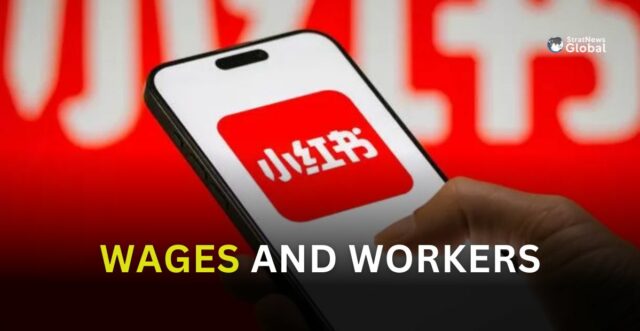There was a time when China’s “Iron Rice Bowl” guaranteed security and stability for urban workers. But as the economy transitioned from state-run to market economy, the focus was on maximising productivity and profits. Result, 996 or the practice where people worked from 9am to 9pm six days a week. Now even that is changing.
Last week China’s social networking and e-commerce platform RedNote stopped its controversial ‘big week, small week’ overtime system. Under this, employees worked six days a week every alternate week. Does that mean employees now work five days a week? It’s not clear.
Despite that, some netizens lauded RedNote’s decision to stop big week small week, saying it would reflect a better work-life balance. But what about employees, asked other netizens, would that result in lower wages for them as they would not get overtime pay?
There’s also the case of JD Takeaway claiming that its delivery riders earn up to 600 yuan or $82 per day and also get insurance benefits. But is this the case with all food delivery riders working for other companies?
Some of the horror stories coming out of China’s gig economy include this about a food delivery rider saying he earned only 98 yuan or $14 after completing eight orders. That kind of a wage would require him to work longer hours, maybe 9am to 9pm.
The million dollar question, how are workers being treated in the provinces as compared to cities like Beijing and Shanghai? Is there a difference? Given President Xi Jinping’s well known distaste for the private tech companies, do employees of state-run firms get a better deal?
How much of China’s efforts to improve work-life balance is driven by genuine concern for workers welfare? For the record, China’s government says all companies must abide by the 44-hour weekly work limit. But it’s no less true that European Union labour laws maybe driving the change in China, not so much social pressure or even conscience.





